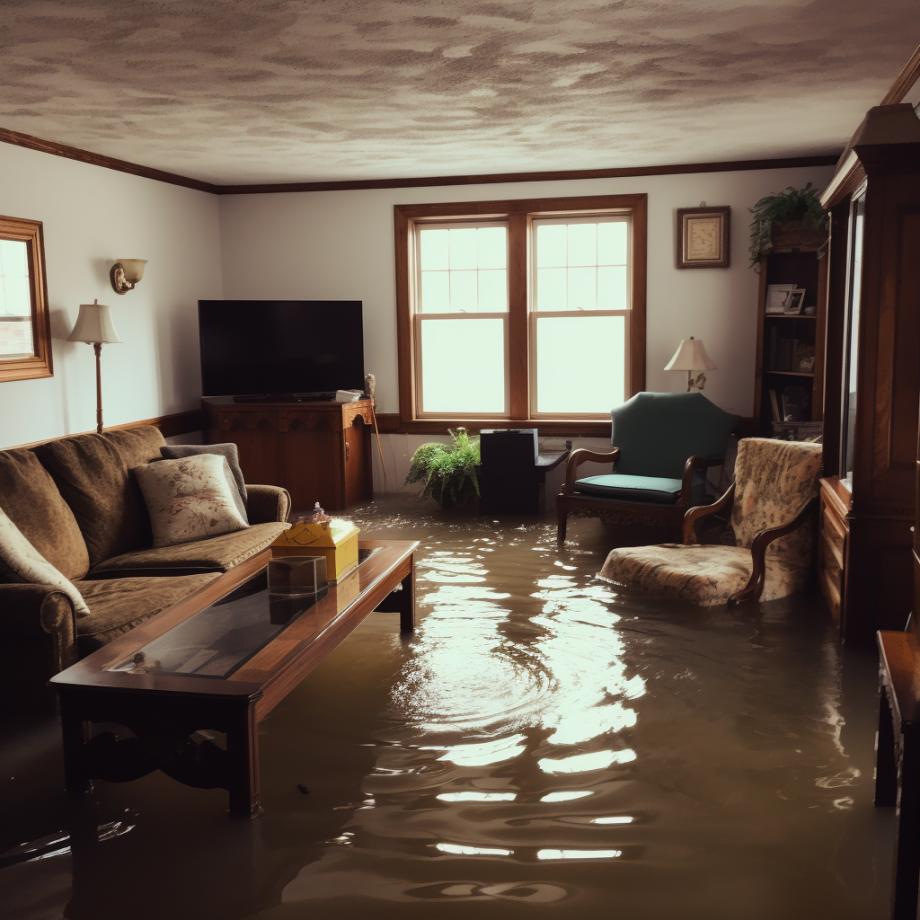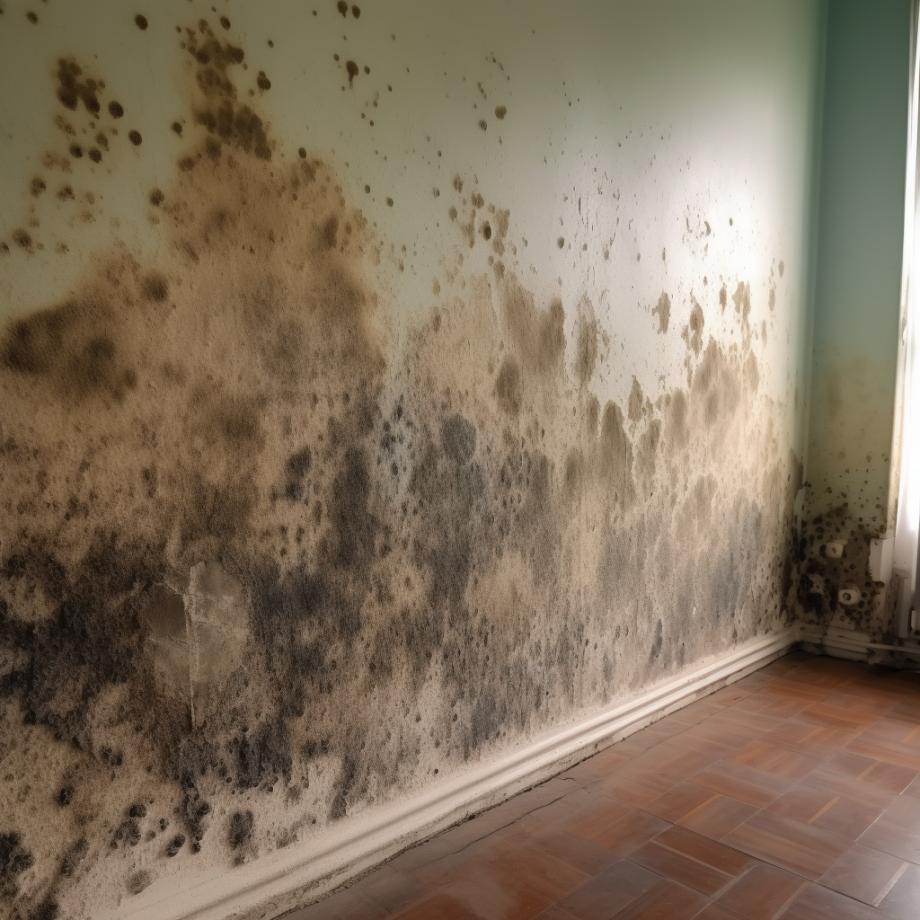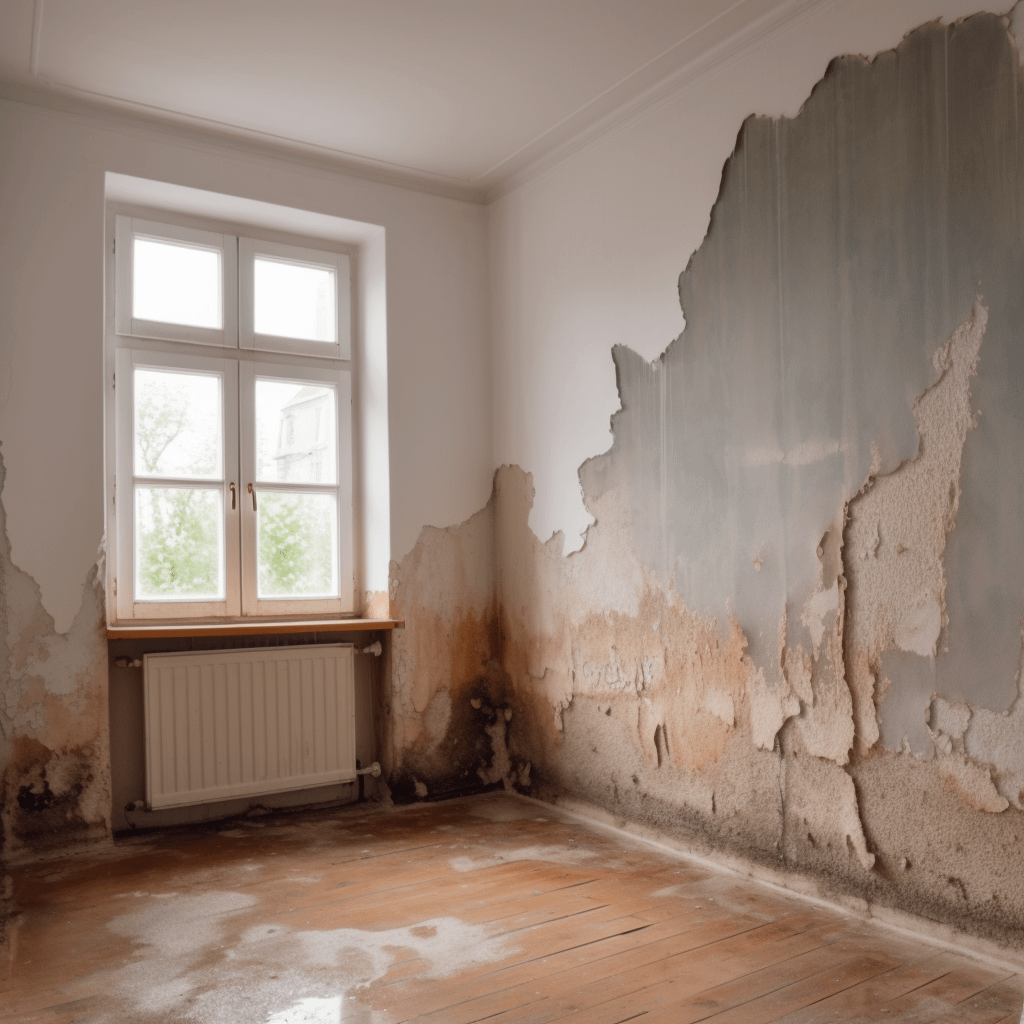You expect your homeowners’ insurance will protect you from massive repair fees if your home is damaged. Discovering mold can make homeowners panic, because it presents the problem of both structural damage and poses a possible health concern. When you contact your insurance provider, you are surprised to learn that mold damage is only covered if it is caused by peril.
In other words, mold is not always covered by your homeowners’ insurance policy, which could leave you footing the bill for repairs if your claim is denied. Policy language that covers mold can be complex. As insurance attorneys, we see problems arise when homeowners file claims for mold damage.
At Wallace Law, we aim to help homeowners fight for the coverage they deserve when they find evidence of mold damage in their homes, even if they have previously been denied coverage by their insurer.

What Is Mold?
Mold is an organic growth that occurs when moisture and oxygen are present. As part of the fungi kingdom, molds grow on other surfaces or foods and digest the material they grow upon for survival. Mold spreads quickly, especially if the problem is not addressed.
Because mold spores are present in virtually all indoor environments, there’s no way to eliminate them. Instead, we control moisture indoors (like in our homes) to prevent the growth and spread of mold.
If moisture is present on a surface in your home, there is a potential for mold to grow. Unfortunately, if a pipe begins to leak in a place where it is not visible, you may not know about it before mold begins to grow and spread.
Does Homeowners’ Insurance Cover Water Damage?
Homeowners’ insurance is notoriously tricky when it comes to water damage coverage. Policies typically cover water damage (including mold) that occurs due to peril or sudden damage, but not for damage that occurs due to ongoing damage that happened over time and could have been prevented.
Sudden vs. Ongoing Water Damage
Mold that results from sudden water damage is typically covered under most homeowners’ insurance policies. Sudden water damage examples include overflowing toilets, burst pipes, or damage from a fire being extinguished with a hose.
Mold that occurs due to ongoing water damage is typically not covered under your homeowners’ insurance policy. This can include mold that develops due to a leaking pipe underneath your sink, or a gradual leak that leads anywhere in your home. If you develop mold as a result of a flood, you may be covered under a separate flood insurance policy, if you have one, but your homeowners policy will likely not cover this damage.

Insurance Policy Limits and Exclusions for Mold
Most states allow insurance carriers to carry exclusions for mold, like the ones listed above. Some states do not allow admitted carriers (carriers who are licensed to issue policies in the state) to exclude mold in their policies.
In these states, carriers may be able to sub-limit policy amounts for mold. For instance, in New Jersey, many carriers sub-limit mold damage to a $15,000 limit. These carriers may also offer homeowners the option to purchase additional mold insurance.
Situations Where Mold Coverage Is Typically Denied
If you have discovered mold in your home and need to file a claim, it’s important to understand your policy and whether or not the damage will be covered.
Long-Term Neglect vs Maintenance Issues
Homeowners’ policies do not typically cover losses due to neglect and the need for maintenance. For instance, a leak that you did not repair, a window that does not seal properly and resulting in moisture entering the home, or a poorly ventilated bathroom. Both neglecting your property and ignoring needed maintenance can result in a claim for mold damage that is denied.
Does Homeowners’ Insurance Cover Mold After a Flood?
Insurance companies define flooding as damage from rising water that affects multiple properties, like a nearby river or lake that floods. If you have mold damage that resulted from flooding, your homeowners’ policy will not cover cleanup.
You will need a separate flood insurance policy to cover this loss. Even if you have flood insurance, mold damage may not be covered. Some companies only cover mold damage if you are unable to access your home due to flooding.
How to File a Mold Damage Claim
If you have discovered mold, you need to file a claim with your insurer. The claims process can be complex, and following your insurer’s instructions for filing a claim is imperative for making sure your claim is not denied for improper or late filing.
Document the Damage Immediately
Take as many pictures and videos as possible to fully document the extent of the mold damage you have. If you can, seal and save contaminated items. If disputes arise with your insurance carrier, items you seal and save may be tested to prove that mold was present.
Get a Professional Mold Inspection
After an accident, be on the lookout for companies that prey on victims for insurance money. It is wise to have several companies inspect the damage and offer you quotes for repair.
You are entitled to have your losses replaced with like-kind and quality. If you accept the first offer you receive for repair, you may not get the best quality or best value.

Communicate Clearly with Your Insurer
Be communicative and clear with your insurer. Provide any information they ask (within reason) and make sure you file your claim in a timely fashion and respond to their communications as soon as possible. If you feel your insurer is not responding to you or ignoring your requests, it may be the best idea to hire a professional insurance claims attorney to represent you in the claims process.
Why Are Mold Claims Denied?
If you file a claim for mold damage and it is denied, it may be because your claim is not for a covered loss. Another reason why claims may be denied is due to improper filing, or filing your claim too late.
Although no one wants to think their insurance carrier will be dishonest with them, a denial for a covered claim could mean that your carrier is acting in bad faith. If this happens, hiring an insurance claims attorney can help you fight back and get the coverage you need to restore your property.
How to Dispute a Denied Mold Claim
An insurance denial is not necessarily the end of the claims process for a mold claim. After a denial, you can file an appeal and take steps to have it reviewed and reevaluated. The denial letter you receive from your carrier should state a specific reason why your claim is being denied.
If the fix is easy, like providing an additional document or key piece of information, send in the requested information as quickly as possible so that your claim may be approved. If the denial is not as simple as a missing document, you may need to begin the appeals process.
Gather Evidence to Support Your Case
Evidence that may be needed to support a denial includes estimates and appraisals from an independent appraiser and/or adjuster. These independent reports can show that your company denied the claim you made for damages by showing that damage is present and worth a certain amount of money.
Additionally, photos and videos may be needed to support your claim to prove your property damage. If you have saved contaminated items, they may need to be tested for proof of the presence of mold.
File an Appeal with the Insurance Company
Your insurance carrier will have its appeals protocols outlined in your policy. Follow this procedure to file an appeal and have your claim reviewed.
Additionally, you may file a complaint with your state’s department of insurance. The state may then begin an investigation into your claim and your carrier to see if the carrier acted in bad faith.
Signs the Homeowners’ Insurance Company Isn’t Acting in Good Faith
Many insurance carriers act in good faith and aim to settle their clients’ claims as quickly and as fairly as possible. However, not all insurance companies are as upfront and honest in their dealings with their customers. If you are not sure if your insurance company is acting in good faith, you can look for signs such as:
- Dragging out the process. If you feel you are getting the run around and that your carrier is not communicating with you, they may be acting in bad faith.
- Not thoroughly investigating your claim or your property.
- Denying a claim with no investigation and little contact with you.
- Failing to ask for additional information from you that could be useful in helping approve your claim for damages.
- Not providing you with a reason why your claim has been denied.
If you feel you are being treated unfairly, it may be time to hire a professional claims attorney to turn up the heat on the carrier and get them to take you seriously. Even though many insurers may advise you to “keep lawyers out of it,” rest assured, they have an entire legal team devoted to making sure their best interests are protected. As a homeowner and policyholder, you deserve that same type of advocacy.
Preventing Future Mold Damage and Disputes
The adage is true; an ounce of prevention is worth a pound of cure. The best way to never experience an insurance dispute over mold damage is to be as proactive as possible about not getting mold in your home. You can take steps to reduce the likelihood that you will have a mold problem by following these steps:
- Keep a check on indoor humidity levels. Ideally, humidity should be below 60% and kept between 30%-50%.
- Repair leaks when you find them. Leaky pipes and faucets can be breeding grounds for mold.
- Use exhaust fans in bathrooms, kitchens, and laundry rooms when bathing, cooking, and doing your laundry.
- Keep your gutters clear and clean from heavy, wet debris.
- Regularly check your home after heavy rain to make sure water is draining away from your home.
In addition, take a moment to review your homeowners’ policy and determine the type of mold coverage, if any, you have. If you find you are not insured and protected against mold, contact your insurer to learn about additional coverage options.
Add Mold Coverage to Your Policy
Most insurance policies allow you to add mold coverage as a policy endorsement. This means you will pay a bit extra for the additional coverage, but if your home is damaged by mold, you will have the peace of mind you need, knowing the damage is covered.
It is also a good idea to review your flood insurance policy if you live in a flood zone. While some flood insurance covers mold damage, some do not. If yours does not, find out what you need to do to add mold coverage to your policy.

When to Hire a Property Insurance Dispute Lawyer for a Denied Mold Claim
If your claim is denied, you will want to hire a property insurance dispute lawyer to help you with the appeals process and possibly file a lawsuit against your insurer on your behalf, if necessary. Even if your claim is not denied, there may be a reason to hire an attorney if you:
- Feel like the insurance company is giving you a lowball offer.
- Your claim is being delayed.
- The claim you filed has more complexities or may need to be divided into two separate claims.
Having an attorney to represent you can make the claims process less stressful and help you maximize your claim. Insurance adjusters who come to your property and inspect your damage work for your insurer, not for you. It is wise to have someone on your side to protect you from lowball settlement offers and unfair denials.
Talk to an Insurance Claims Dispute Lawyer Today for Help with Your Mold Claim
If you have an insurance dispute, we are here to help. At Wallace Law, we handle claims for mold damage in addition to all other types of property damage claims. It is our goal to help you fight for the coverage you need when you need it.
Contact us today for a review of your case and to find out how we can help you with your claim.











